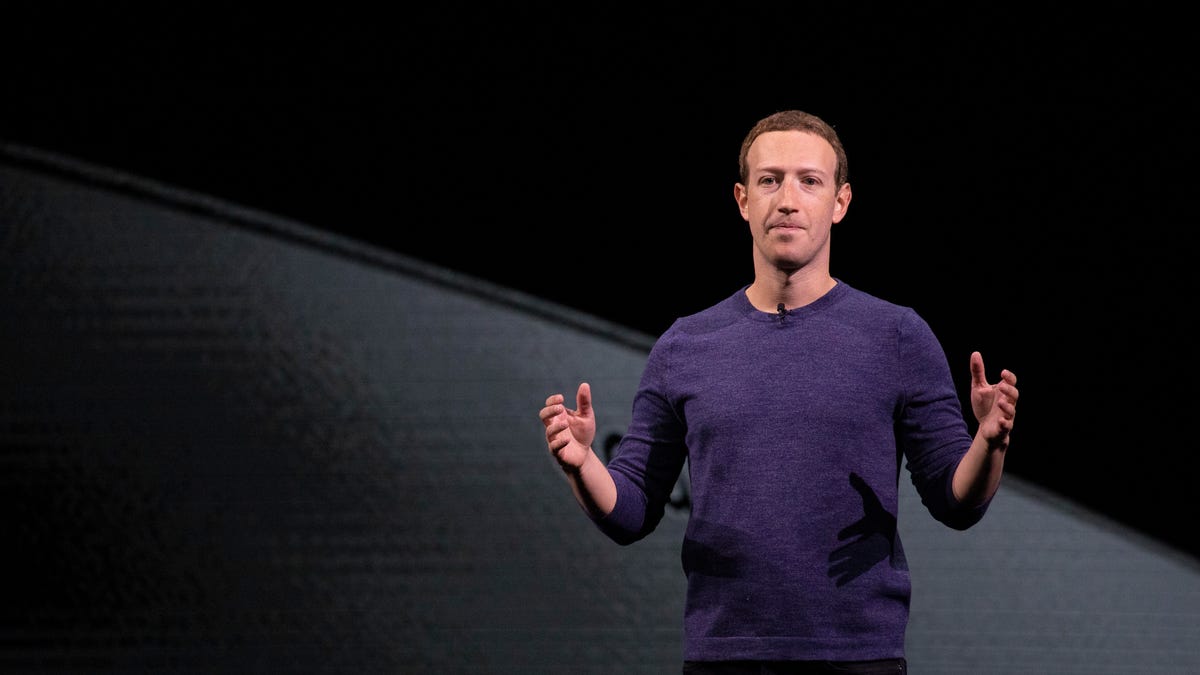Facebook CEO Mark Zuckerberg: Breaking up social network won't help fix its problems
Zuckerberg thinks a breakup will make it "harder" for the social network to police content.

Facebook CEO Mark Zuckerberg.
Facebook CEO Mark Zuckerberg said Thursday that breaking up the social network will make policing harmful content, such as hate speech and violence, more difficult for the company.
The tech mogul's remarks come amid growing calls to curb the company's enormous power. Lawmakers and even one of the social network's co-founders have called for US regulators to rein in Facebook. Some critics have called for Instagram, a photo-sharing site, and WhatsApp, a messaging service, to be split from the company.
Facebook has come under fire for a long list of problems, including its failures to protect user privacy, prevent election meddling, and stop the spread of hate speech and terrorist messages on its platform. Chris Hughes, who co-founded Facebook with Zuckerberg while they were students at Harvard, argued in an op-ed published by The New York Times this month that the CEO has so much power that it's both "unprecedented" and "un-American." Earlier this week, Alex Stamos, who used to run security at Facebook, called on Zuckerberg to resign.
During a conference call on Thursday, Zuckerberg pushed back against the idea that breaking up the company will solve its biggest woes.
"I don't really think that the remedy of breaking up the company is going to address those [problems]," he said during a conference call. "I actually think it's going to make it a lot harder."
Zuckerberg didn't say why, but a Facebook spokesman said earlier this month that having Instagram and WhatsApp under Facebook helps the company fight spam, election meddling and crime. That's because when the social network pulls down an offensive post on Facebook, it can also use artificial intelligence to flag the same content if it pops up on Instagram and WhatsApp.
Zuckerberg also argued that Facebook has competition, such as TikTok, Snapchat and Twitter, and is part of a "very competitive and dynamic environment where new services are constantly coming up."
Instead, Zuckerberg suggested that regulation was part of the answer. The tech mogul has called for more regulation including setting "baselines" for what content is prohibited and requiring companies to keep offensive content off their sites. Some advocacy groups and the Federal Communications Commission's chief of staff have raised concerns about a "one-size-fits-all solution" for content moderation.
Facebook also released a report on Thursday that included data about how much hate speech, violence, nudity and other offensive content it pulled down from October to March. The report showed that the company removed a record 3 billion accounts during those six months.

